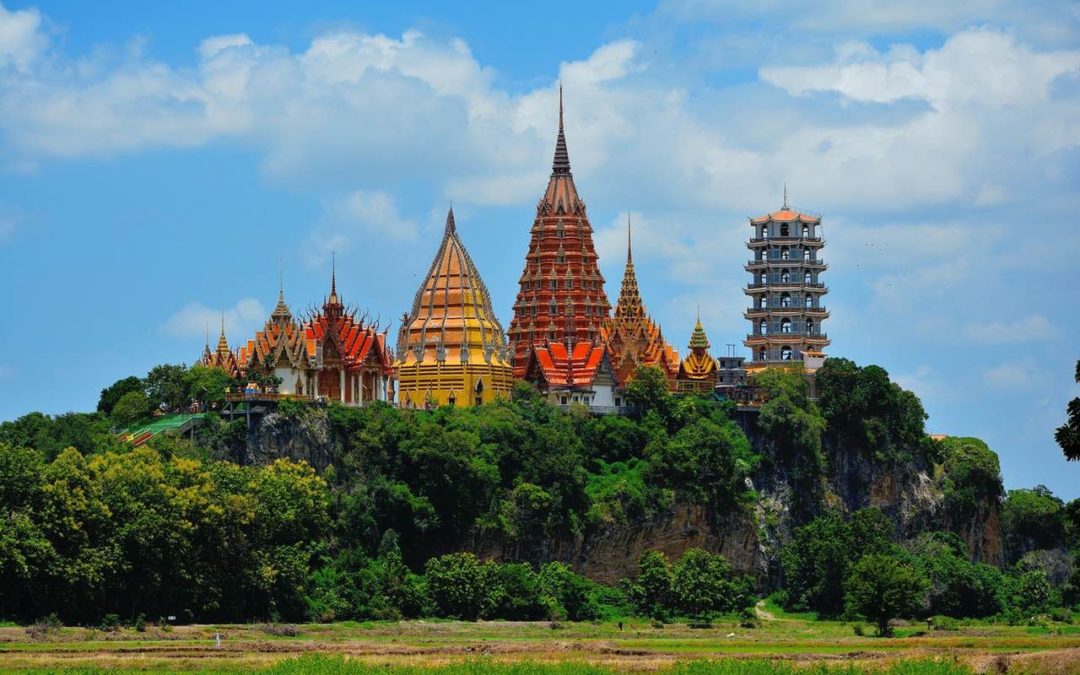Billy Harrington-Roberts was on a one year placement as a volunteer teacher in Thailand. Throughout his stay he had taken a keen interest in the political situation in the country. His experience stood him in good stead when he arrived at university later that year (2014)
I am an 18 year old volunteer teacher currently living in a small town in the north west of Thailand, and next year I will go on to study International Relations and Thai. Having lived here for just over 8 months, I have been interested in and keenly following Thai politics for a long while now. Although only recently has the Thai political situation made it into international headlines, the problems are deep rooted and go back for many years. Ever since I arrived in Thailand, the newspapers have been full of spats between the PAD and UDD, the Democrat Party and the Puea Thai Party. Corruption accusations and legal charges were continually being brought upon one of the sides by the opposing one, and it was clear that the reconciliation process was in a very primitive stage and had never really got going since Thaksin Shinawatra was ousted from power in 2006. I knew that at some stage tensions were going to have to boil over.
When I arrived in Thailand, knowing only the very basics about the whole political history and current situation, I was intent on trying to find out more. I tried talking to people and asking their opinion on politics, but no one would give one. I wanted to talk to someone who felt passionate about politics from either side, but people would just condemn both. As I grew accustom to Thai culture I realised Thai people’s non-confrontational attitude extended to politics. Although people may hold personal views, they would never share them with close friends or family, let alone a work colleague. Debate in Thailand is nigh on impossible, and the ‘mai pen rai’ it’s nothing attitude means that any confrontation or problem is brushed aside and not properly dealt with.
It is this reason that when the red shirts started their ‘red march’ as the local papers called it, I was happy. There were talks before of a violent uprising in the run up to Thaksin Shinawatra’s financial court case on 26th February, but instead the UDD decided to launch a peaceful protest a couple of weeks later, aimed at forcing the government to dissolve parliament and hold a general election. Although I did not, and still do not, know enough to fully support the red shirts, I supported their willingness to openly voice an opinion peacefully, and to speak out and oppose the government without being phased by the Thai culture of avoiding a clash of opinion. This is not only because I am someone for political participation and healthy debate, but also because their opinion seemed to represent that of a group who wanted to move forward democratically.
However, I did not predict the disastrous day of April 11th, where clashes between the army and protestors left 25 dead and over 800 were injured. The whole of Thailand was suddenly in a state of shock, and the international media coverage of the protests exploded. Thai people, who pride themselves on being smiley, friendly, and peaceful, were all of a sudden being portrayed in a whole different light. Tourism, which the Thai economy absolutely relies on, dropped significantly as governments around the world started advising travellers to avoid Thailand and Bangkok. I, just by chance, happened to be staying in Bangkok on the night of the 11th, as I was breaking up my journey travelling from the north to the southern beaches of Thailand during the Thai school summer holidays. I was dismayed that such a thing would happen in Thailand, one of the safest countries I have ever been in the world, but I was never nervous or fearful. As I walked the streets of Bangkok, they seemed a lot quieter than normal, but everyone around me was just going about their daily business. I was able to go about my plans shopping in Bangkok as intended, and no transport seemed to be effected as I was able to continue my journey down south to the beaches.
Away from Bangkok, it was as if nothing had happened. Tourists and travellers still flocked to the amazing beautiful beaches across the south of Thailand, and without access to the internet or any English-language media, I would have otherwise been completely oblivious to any of the troubles in Bangkok. The few Thais I did ask about the protests all utterly denounced the conflict and violence. One person even personally apologized to me for the situation. Tourists or the general public have never been at risk, and it is here where the Thai mai pen rai attitude prevailed over western government’s exaggerations and overreactions in terms of travel advice. It was not that the problem in Bangkok was not extremely serious and dividing the country in two; it still is. But Thai people’s ability to brush aside problems and get on with their lives, their ability to fully reject conflict and violence here must be a positive one.
Having said that, this is not what people want from their leaders, who are meant to deal with and defuse tense political situation. For a long time, the Prime Minister Abhisit Vejjajica had appeared to sit back and do nothing. People have now started to feel frustrated at his apparent lack of leadership. He does not want any more deaths, which would be inevitable if the protests were cleared; but he also doesn’t want to give in to the opposition who have been out on the streets for weeks and weeks, which would make the past couple of weeks of indecisiveness from the government purposeless. There were no talks or compromises, and it felt that the situation was in stalemate. With talks of the army being moved in to clear the protestors, who over time have dug themselves in with fortified barricades around their protest area, the problem seemed like it was only going to escalate. However, since I have started writing this, PM Abhisit has come up with a 5 point ‘reconciliation roadmap’, including an election date for around November 14th, which the UDD appear to have accepted. Finally, Abhisit seems to have offered a fair and thoughtful compromise to defuse the situation. Finally, I am hopeful that the possibility of more violence may soon be over.


